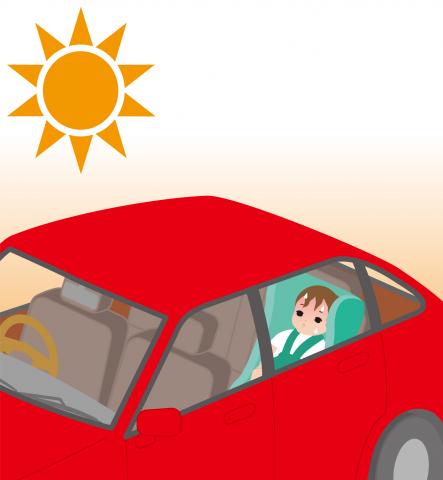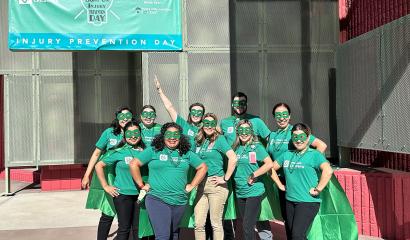Bright Futures
Articles and Updates from Phoenix Children's
I became a mom at a young age. Between going to school, working two jobs and other responsibilities my days were stressful, and my schedule often changed. Not to mention the lack of sleep I experienced. As parents we suffer from many of these things, including fatigue, distractions, stress, multi-tasking, and changes in our ‘once before’ normal routines. Any of these elements can cause our memory to fail at a time when we least expect it.
According to noheatstroke.org, 883 children have died due to pediatric vehicular heatstroke since 1998. More than half of the children were unknowingly left behind by their caregiver. A child left inside a vehicle can take place during different settings. A child’s body temperature can heat up three to five times faster than an adult. Never leave a child unattended in a vehicle for any length of time, regardless of the outside temperature. Even on cloudy days, temperatures inside a vehicle can reach life-threating levels.
For most people, the first thought that will come to mind is “I would never forget my child!” Let me just say that we would never want this to happen to any of us, but it can. It can happen to anyone regardless of their education and socioeconomic status. They include nurses, law enforcement officers, teachers, dentists, social workers, clergymen, and many others. Even the most loving, thoughtful, and responsible parent can forget their child is in the back seat.
The issue involves two parts of a person’s working memory: prospective memory and habit memory. In prospective memory we store new information, remember to do something in the future and make conscious decision making. On the other hand, habit memory is on “autopilot.” We do things that are routine without even thinking about it. Our brains turn on automatically without a conscious decision to do so. Any caregiver can have moments of forgetfulness.
Healthychildren.org, the official parenting website of the American Academy of Pediatrics, provides some safety reminders that we can follow:
- Avoid distractions while driving, especially cell phone use
- Before locking the car and walking away, always check the back seat and make sure all children are out of the car
- Force yourself to go to the back seat. Put your purse, briefcase, laptop, cell phone in the back seat. This will remind you to check the back seat when you arrive to your destination
- Be extra vigilant when there is a change in your routine, for example if someone else is driving your child or you a take a different route to work or childcare
- If you are more than 10 minutes late, have your childcare provider call you
- If someone else is driving your child, always check to make sure they have arrived safely
- Keep your car locked when it is parked to prevent a curious child from entering when no one is around. Many hot car deaths have occurred when a child mistakenly locks themself inside.
- Make sure children do not have easy access to your car keys. Store them out of a child's reach.
- Teach children that cars are not safe places to play
If you see a child alone in a vehicle, make sure they are okay and responsive. If they are not, call 911 immediately. According to the National Highway Traffic Safety Administration (NHTSA), if the child appears to be okay, try to locate the parents/caregiver. If you’re at a public location, have the facility page the car owner over an intercom system. However, if the child is not responsive or appears to be in distress, attempt to get into the car to assist the child - even if that means breaking a window. Several states have “Good Samaritan” laws. In Arizona, HB 2494 was adopted into law in May of 2017. This allows good Samaritans to act without risk of civil liability if they rescue a child or a pet from a hot car.
There is no one on this earth that is incapable of forgetting something. The biggest mistake someone can make is to think that this can ever happen to them. Remember to always look before you lock.




